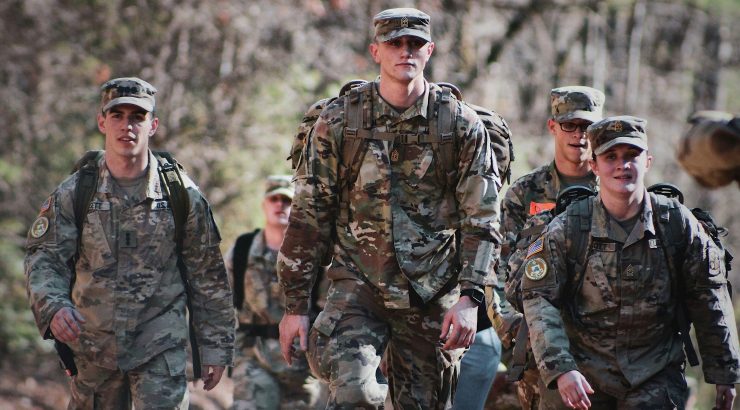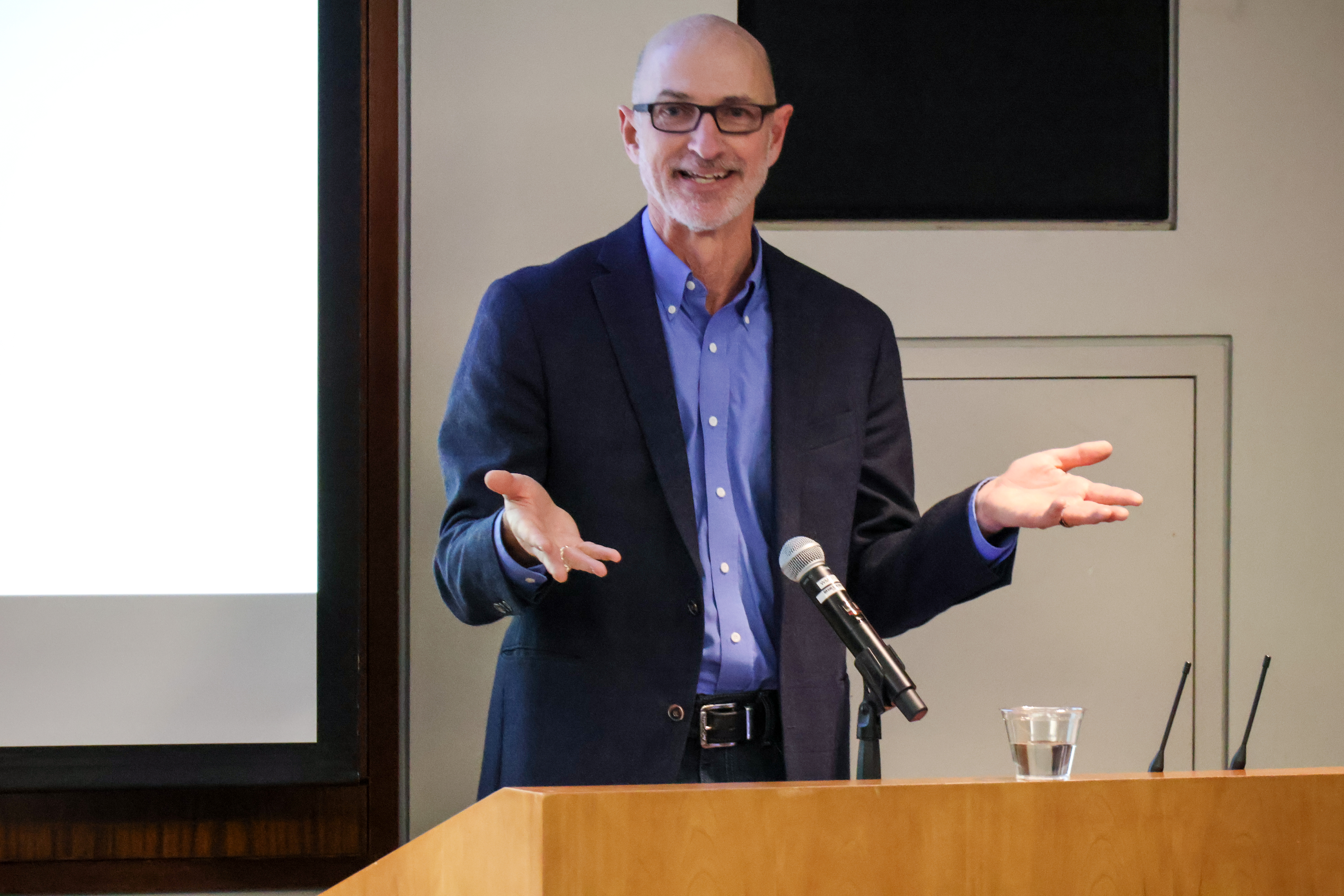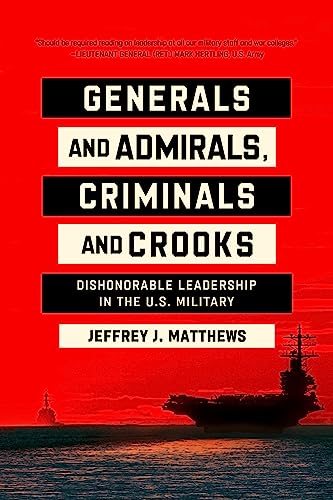
Criminals and Crooks: Dishonorable Leadership in the U.S. Military with Jeffrey Matthews
March 28, 2024

Jeffery Matthews
The War, Diplomacy, and Society MA Program, in partnership with World Affairs Council Orange County, welcomed Jeffery Matthews, professor at the University of Puget Sound in Tacoma, Washington, for a lecture and presentation on his newly published book, Generals and Admirals, Criminals and Crooks: Dishonorable Leadership in the U.S. Military. Matthews, who teaches American history and leadership, presented an examination of bad leadership in American military history over the past one hundred years, scrutinizing a range of leadership failures including moral cowardice, sex crimes, insubordination, toxic leadership, and obstruction of justice.
Matthews emphasized his work is not an attack on military leadership. Instead, as an advocate of the military, he promotes self-assessment for the betterment and improvement of one of the world’s largest military forces. These historical examinations, Matthews argues, should contribute to the positive development of good leaders.
“Any organization that is serious about leadership development has to learn from [and take seriously past] leadership shortcomings.”
Matthews offered a fascinating analysis of the reasons leading to the missteps of admirals and generals. One important pattern highlighted was ignoring the “moral cracks” of junior officers that developed into deeper and more serious failures once those junior officers were promoted to senior leadership positions. How do flawed people get promoted? Matthews queried the audience. “Because they’re effective and smart,” Matthews advanced, “[and the military] values character and competence. But, sometimes, competence is overly valued.”
Illustrating his case, Matthews discussed Hyman G. Rickover, admiral in the United States Navy in the early 1980s. Rickover’s career was one decorated with accolades: he directed the original development of naval nuclear propulsion and controlled its operations for three decades, oversaw the development of the  Shippingport Atomic Power Station (the world’s first commercial pressurized water reactor used for generating electricity), and was one of four people who have been awarded two Congressional Gold Medals.
Shippingport Atomic Power Station (the world’s first commercial pressurized water reactor used for generating electricity), and was one of four people who have been awarded two Congressional Gold Medals.
Rickover’s military authority and congressional mandate were absolute with regard to the U.S. fleet’s reactor operations, but his controlling personality was frequently a subject of internal Navy controversy. Author and former submariner Edward L. Beach Jr. referred to him as a “tyrant” with “no account of his gradually failing powers” in his later years. Matthews drew on other accounts where Rickover’s competency as a military leader was valued over the outstanding moral character the U.S. Military purports, as well as the negative impact on service men and women of all levels underneath Rickcover’s station.
Matthews also illuminated the complexity within the context of military reprimands; as in the case of Harold K. “Johnny” Johnson, who served as Chief of Staff of the United States Army from 1964 to 1968 and was threatened with a charge of moral cowardice for his sharp criticism of search-and-destroy tactics and reliance on death tolls to measure success during the Vietnam War.
“Candid self-examinations are crucial for the U.S. military given its vital role in our democratic society.” Matthews writes in his book, “Because of the disproportionate power and influence of generals and admirals, their misconduct can have utterly dangerous effects, eroding not only civilian faith and confidence in the military, but also trust and respect within the all-volunteer ranks.”
“I found Dr. Matthews’ discussion about the criminality and moral cowardice of generals and admirals to be enlightening,” said staff member and War, Diplomacy, and Society student Christian Grevin, “I had no idea the extent of these issues within the military, especially the more recent incidents. It can be easy to relegate issues to the past and ignore the contemporary versions of problems, but this talk served as a reminder about the importance of investigating such topics to draw attention to them and hopefully foster solutions.”
The Master of Arts Program in War, Diplomacy, and Society educates graduate-level students by rigorously examining the social, cultural, political and moral aspects of how societies go to war, experience war, and deal with war’s consequences. For more information about the MA program, or the integrated BA/MA program, contact Graduate Programs Coordinator David Krausman at krausman@chapman.edu.
(Header Photo: Photo by Scandinavian Backlash on Unsplash)

